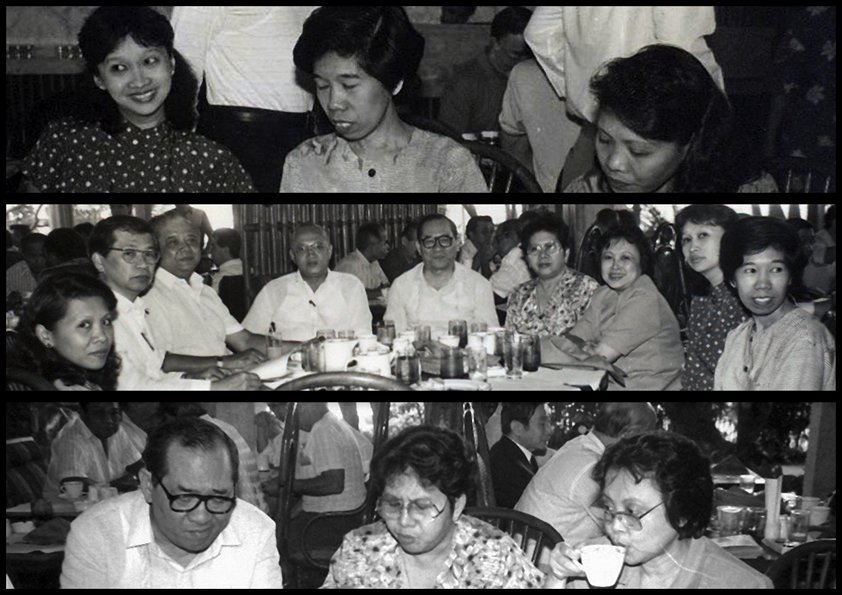Exercise is Medicine Philippines – A new twist to an Old Habit
With excerpts from “Because our EXERCISE prescription really matters!”
Sheila T. Lim, MD, FPCP, FPCEDM
_______________________________
FREQUENCY
How many minutes of exercise a week?
INTENSITY
Will the exercise be of mild, moderate, or high/vigorous intensity?
TIME
How long will each session be?
TYPE
Is the ideal exercise in the form of aerobic, endurance or resistance exercises?
_______________________________
Believe it or not, this was somewhat my reaction when I was asked to join the group called Exercise is Medicine (EIM) Philippines. For those who do not know me, I’m not exactly Pia Wurtzbach. Even as an infant, my mother had to undergo a caesarean section because she could not push out the bouncing baby girl that was 8 pounds 10 ounces. Yes! I was a gestational diabetes baby! Growing up was not as different. I was always the chubby one – the one who never outgrew her baby fats. So imagine my surprise when I got called to go to Singapore to train for Exercise is Medicine. At that time, my only goal was not to embarrass myself during this activity. I was praying “please God, don’t let them reject me because my BMI is more than ideal!” Little did I know, the course would eventually change my perception about being healthy. Let me tell you all about it!
Exercise is Medicine Philippines is an initiative group led by the Philippine Association for the Study of Overweight and Obesity (PASOO), and is implemented and coordinated by a National Task Force composed of experts from various medical and related disciplines – endocrinologists, family physicians, physical fitness experts, nutritionist dieticians, social scientists and others. Its vision is to make physical activity and exercise a standard part of global disease prevention and treatment medical paradigm. Its mission is for physical activity and exercise to be considered by all health care providers as a vital sign in every patient encounter, and that patients are effectively counselled or referred to experts for their physical activity and exercise needs.
One of the key components of Exercise is Medicine Philippines is enabling health care providers, regardless of specialty, to review and assess every patient’s physical activity level at every visit. It aims to train healthcare and fitness professionals to PRESCRIBE EXERCISE to prevent and treat common chronic health conditions for patients. And it was what the Exercise Prescription Training was able to impart.
The course focused on EXERCISE PRESCRIPTION writing. It’s very interesting that there is an alternative prescription (in the form of EXERCISE) that we can give to our patients similar to how we prescribe medications. If a conventional drug prescription would include the name, the dosage, the frequency and route of the drug, the EXERCISE PRESCRIPTION would include the same thing only in a different format.
Of course, just like any drug prescription, the EXERCISE prescription should be individualized to fit the needs of the patient. That is why we were given different scenarios on how we can prescribe according to diseases like hypertension, heart disease, diabetes, metabolic syndrome, obesity, arthritis, osteoporosis, asthma and even depression. We even had a session on how to motivate our patients to do the actual exercise. (Note: This part I extremely like for personal reasons!)
Coming back from the training course for Exercise is Medicine, I made a profound realization – Change is hard at first, messy in the middle, and Gorgeous at the end! Yes, we might have to fight through some bad days but always remember that these will help us earn the best days of our lives. We should stop trying to look perfect. We just have to feel better and know that we’re healthy. With a group like Exercise is Medicine to help our patients and even ourselves, there is hope after all. Being healthy and fit isn’t a fad or a trend. Instead, it is a LIFESTYLE. So what are you waiting for? Exercise na!
“Exercise is Medicine Philippines is an initiative group led by the Philippine Association for the Study of Overweight and Obesity (PASOO), and is implemented and coordinated by a National Task Force composed of experts from various medical and related disciplines…”
See more Endocrine Hotspots Editions at endo-society.org.ph/endocrine-hotspots
Brought to you by the Philippine College of Endocrinology Diabetes and Metabolism (PCEDM)
Website: endo-society.org.ph
IG: @endocsociety
Twitter: @EndoSoc_ph
Facebook: fb.com/filipinoendocrinologists



